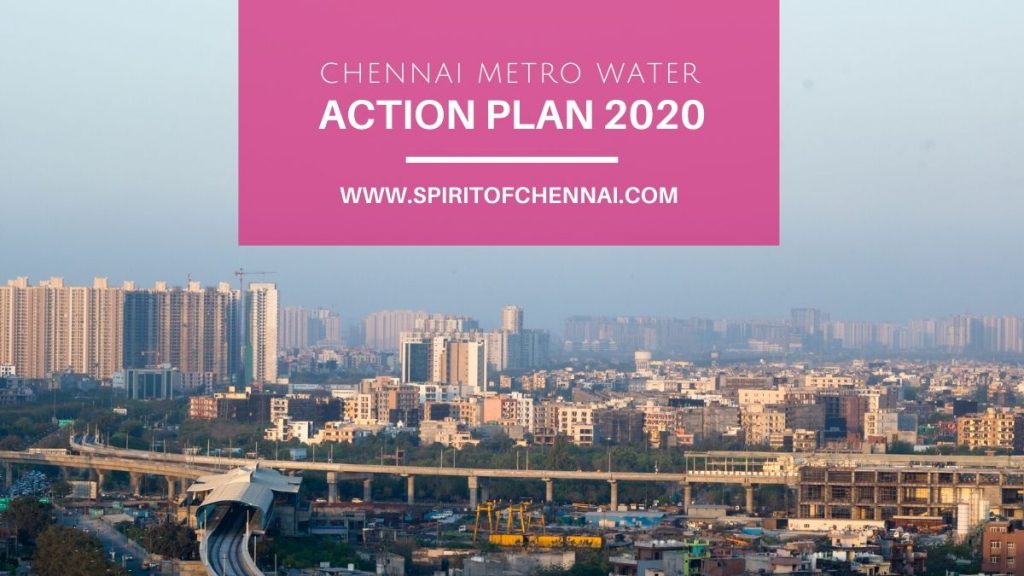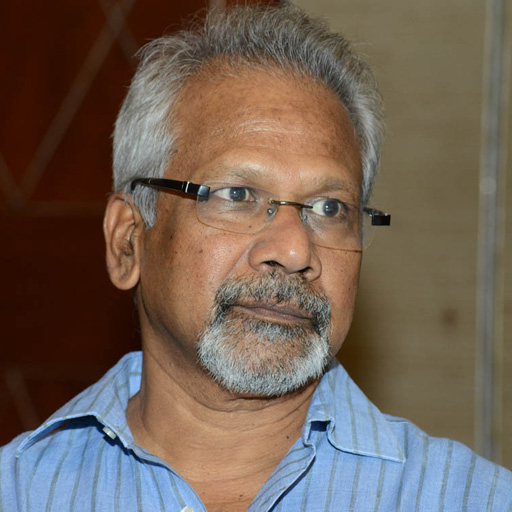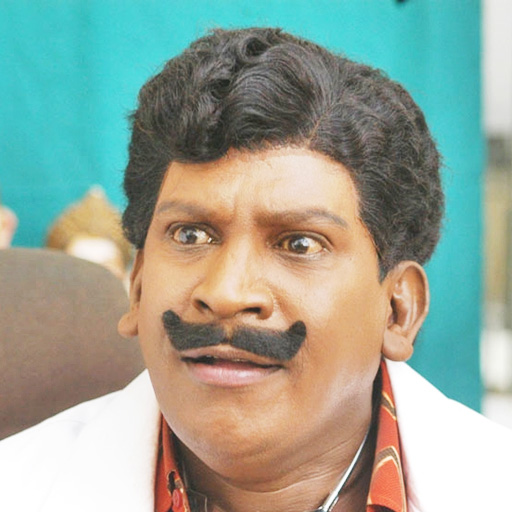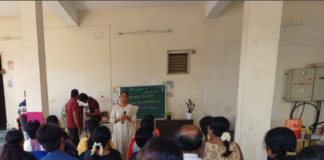Chennai Metro Water unveiled the 2020 Action Plan to tackle the water crisis in Chennai.
Under the plan, CMWSSB (Chennai Metro Water Supply and sewerage Board) has created a 10 point action plan. This will handle the perpetual water and sewage crisis of Chennai, with a comprehensive strategy.

The various components of the plan are:
Last Mile Sewerage Connectivity
Assessing the missing critical last mile in sewerage connections, CMWSSB has initiated 2 schemes. About 1 lakh new connections are planned as part of these schemes.
- Azhaithal Inaipu: As part of these schemes, a new sewerage connection will be provided with only a phone call. The interested citizen can dial for a sewerage connection and the same will be provided by CMWSSB without any documents.
- Illanthorum Inaipu: As part of this scheme, a push is being given to people, to migrate from local STP to the main sewerage system. The payment for the connection can also be done by installments over a period of 5 years.
The areas to benefit from the scheme include Ambattur, Ullagaram and Puzhuthivakkam, Madhavaram, Puthagaram, Nolambur, and Sholinganallur that were added to Chennai Corporation limit after 2012.
Speaking to SpiritofChennai.com reporter a resident from Chemmenchery said “It is good that, Metro Water has allowed for payment by installment as this will reduce our financial burden”
Sewer Lorry Services – Mobile Sewerage Services
50 additional sewer lorries will be procured to collect sewage from residences. This lorries will have capacities ranging from 6000 – 9000 liters.
This will significantly benefit residents in outlying areas as the current private lorries charge a steep fee for providing this service. “Since this is a Government Service, the cost will also be much affordable,” said a resident living in Gnanpuram near Chennai Airport. These lorries will then take water to one of the sewage treatment plants of Metro Water. This will also prevent the illegal dumping of sewage in streams and rivers.
“50 Lorries doing 10 trips a day, can clear about 4.5 million liters of sewage every day,” said a senior CMWSSB official.
Ground Water Monitoring
Chennai’s heavy dependence on Ground Water for their water needs was very evident during the recent water crisis. Chennai’s dependence on about a third of its water supply on groundwater over the years has led to indiscriminate pumping without any restriction or oversight. According to estimates, some borewells in Chennai are almost 1000 ft. deep. This coupled with seawater intrusion has only accelerated the dilapidation of water resources in Chennai.
Greater Chennai Corporation along with Metro Water also conducted an audit of Rain Water Harvesting structures across the city. Many deficiencies were reported but subsequent action was not taken by GCC for many administrative reasons.
So Metro water has planned to monitor the groundwater level in 200 locations to check the drawdown levels. Many cities world have strict controls on the depth of borewell and pumping limits. Tamilnadu has a similar regulation by virtue of the Tamilnadu Metropolitan Ground Water Regulating Act but is not enforced. “Having continuous monitoring of 200 wells and making sure water recharge structures are created will only make sure Chennai is more resilient to water extremes,” says Mr. Dwarakapillai of Greater Chennai Corporation.
GIS Mapping
A plan to map the city’s entire water supply and sewage network through Geographic Information System (GIS) will be undertaken. This will help authorities identify and fix any faults in the network as well as monitor the various utilities of the agency.
This data will be overlaid with the Aerial survey done by Greater Chennai Corporation for property tax. This will help Metro water in planning and managing its resources better.
Solar Energy
Metro Water plans to create a solar power network yielding up to 25MW. This will reduce the energy consumption of Chennai Metro Water.
Greater Chennai Corporation recently completed Solar Installation on many of its assets and created a capacity of 3 MW across the city. This project alone reduced the energy cost of GCC by 13% annually. Likewise, Metro Water will be able to significantly reduce its energy demand by relying on solar roof power. Another public sector company that has seen significant improvement in its energy savings is Chennai Metro Rail that powers some of its stations completely using renewable power.
Rehabilitation of Manual Scavengers
Chennai Metro Water aims to rehabilitate all the manual scavengers deployed in its operation in 2020. Even though there have been numerous stays and bans on manual scavenging by various courts, the on-road implementation has always flagged. For the first time Chennai Metro Water has come up with an Action Plan to make this operational.
As part of the plan, the workers involved in manual scavenging may be trained in other operational roles like driving, operators in treatment plants, etc…
Tamil Nadu holds the dubious record of having the largest number of manual scavengers. The Metro Water department aims to rehabilitate all manual scavengers employed in its rolls in 2020. The agency plans to employ those who are engaged in manual scavenging in other work, for example, as drivers of water supply tankers and sewage disposal lorries.
Quality Assurance Laboratory
The monitoring of water quality is carried out in the Quality Assurance labs of Metro Water. They continuously determine whether the water supplied meets health and safety standards, set by the WHO. The lab is set to receive an upgrade along with skill training programs for those analysts engaged in testing the quality of water supply.
This up-gradation will help the labs to assess challenges and be able to detect newer virus/bacteria strains.
Wastewater Reuse
The decadal growth rate of water requirements in Chennai is about 29%. To manage this demand Metro Water plans to expand the number of wastewater treatment facilities in Chennai. Currently, the city has seen two tertiary treatment reverse osmosis plants inaugurated to date at Kodungaiyur and Koyambedu, with an output of 45 MLD each.
Chennai Metro Water has proposed two Tertiary Treatment Ultra Filtration (TTUF) projects to be set up at Perungudi and Nesapakkam. Each of these plants will have a capacity of 10 MLD each and will increase the supply of water, reducing the stress on existing water resources.
Decentralized Water Sources
Chennai’s primary source of water supply from organized sources is from lakes at Cholavaram, Red Hills and Chembarambakkam. This has proved to be insufficient in times of severe shortage of water. This is including the years that follow a failed monsoon. Chennai Metro Water has planned to decentralize this supply dependence and look at smaller options. These are lakes like Perumbakkam, Ayanambakkam, Perungudi, Rettai Eri. With the establishment of modular water treatment plants to supply 30 MLD of water per day to surrounding areas.
Water Supply Schemes
The limit of Greater Chennai Corporation changed from the current 176 sq.km to 426 sq.km in 2012. The added zones of the Corporation did not have any organized water supply schemes. Chennai Metro Water has now, as part of its 2020 Action plan, proposed to set up water schemes for areas in Kottivakkam, Palavakkam, Perungudi, Mugalivakkam, Edayanchavadi, Sadayankuppam, Kadapakkam, Manali, Chinnasekkadu, Nerkundram, Valasaravakkam, and Pallikaranai.
“This is an excellent step forward, as the private water supply lorries charge exorbitantly, This is will allow for a stable dependable source and will reduce haggling with providers with, political connections,” says Mr. Dayalan from Sea Ocean Apartments in OMR.



